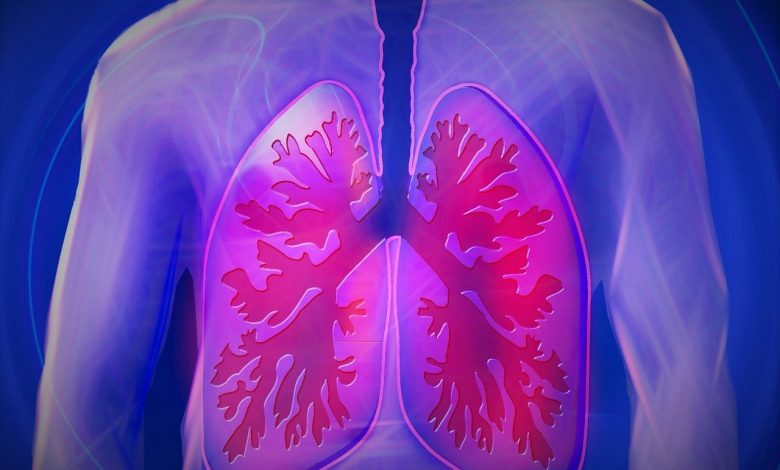Things you should know about pulmonary disease?

You don’t realize how vital your lungs are until they fail to function accurately. Lungs are significant organs without which nobody can survive. Coughing and wheezing are common symptoms of the common cold and flu. Thankfully, these brief lung issues go away. However, sadly, millions of Americans suffer from chronic lung disease, which can be painful, life-threatening, or even fatal. If you are experiencing lung issues, contact a pulmonary doctor in Michigan for the best respiratory treatment.
Despite its prevalence, pulmonary disease is frequently not given the same importance as numerous other issues. So what should you know about the different types of lung diseases, their causes, treatment procedures, and how to prevent them? In this blog, we will help answer these questions.
What is Pulmonology?
The field of internal medicine that focuses on the respiratory system is known as pulmonology. It involves the lungs, upper airways, thoracic cavity, and chest wall.
Pulmonary medication has been around for many years, yet developed into its clinical specialty during the 1950s when William Welch and William Osler established the American Thoracic Culture, made to study and forestall tuberculosis.
The field of pulmonology includes different clinical methods. That involves the examinations of blood and arteries. Furthermore, pulmonologists examine blood tests, lung volume, and lung functions with pulmonary function tests.
Also Read: Is Bronchitis Contagious? 9 Ways to Not Spread It
Who is a Pulmonologist?
A healthcare physician who focuses on the respiratory system is known as a pulmonologist. If your complaint involves the lungs or any part of the respiratory system, a pulmonologist is a doctor you should see to find a solution.
A pulmonologist examines, diagnoses, and treats respiratory conditions. Furthermore, these medical professionals are also called chest doctors, lung specialists, or lung doctors. Pulmonologist work in several settings. You can find them in their clinics or hospitals.
Why would you need to see a Pulmonologist?
If you’re suffering from symptoms related to your chest or lungs, consult a primary care doctor. They will conduct a medical examination and might refer you to a pulmonary doctor if you have
- Increased breathlessness
- Chronic persistent cough
- Cough that contains blood or mucus
- Unexplained weight loss
- Occasional shortness of breath, especially after exercise
- The need to clear your throat often
- Sometimes waking up at night feeling breathless
- Frequent chest infections
- Persistent wheezing
In addition, you might begin making minor adjustments, such as avoiding stairs and skipping physical activities. If you have a high temperature or don’t feel like doing your typical exercises, try to remain at home. Keep away from contact with others until you feel significantly improved. Furthermore, a “flare-up” or “exacerbation” is when your symptoms suddenly worsen. Although treatment can help slow the progression, it is common to experience a few flare-ups, particularly during the winter.
What conditions do Pulmonologists treat?
Pulmonary doctors are skilled and experienced in various types of respiratory disorders. Some of them include
- Infectious
- Structural
- Inflammatory
- Neoplastic
- Autoimmune
In addition, their expertise extends to the cardiovascular system. Some of the conditions they treat are:
- Asthma
- Bronchiectasis
- Acute and chronic bronchitis
- Chronic obstructive pulmonary disease (COPD)
- Interstitial lung diseases
- Occupational lung disease
- Obstructive sleep apnea
- Tuberculosis
- Emphysema
- Lung cancer
- Pulmonary hypertension
- Cystic fibrosis.
Moreover, specific conditions, such as pulmonary vascular disease, affect the respiratory system and later affect other parts of the body.
What are the causes of Pulmonary Disease?
Pulmonary disease is caused by various factors, including:
- Smoking: Smoking is the leading cause of pulmonary disease, including chronic bronchitis, emphysema, and lung cancer.
- Environmental pollutants: Exposure to environmental pollutants, such as air pollution, dust, and chemicals, can damage the lungs and increase the risk of pulmonary disease.
- Genetic factors: Some types of pulmonary diseases, such as cystic fibrosis and alpha-1 antitrypsin deficiency, are caused by genetic factors.
- Infections: Infections such as pneumonia and tuberculosis can damage the lungs and lead to pulmonary disease.
- Allergies: Allergic reactions can cause inflammation in the lungs and airways, leading to conditions such as asthma.
- Occupational exposure: Certain occupations, such as mining and construction, may expose workers to dust, chemicals, and other pollutants that can damage the lungs and lead to pulmonary disease.
- Aging: As people age, their lung function naturally declines, which can increase the risk of pulmonary disease.
- Lifestyle factors: Lifestyle factors such as a sedentary lifestyle, poor nutrition, and obesity can also contribute to pulmonary disease.
Furthermore, it is vital to note that some types of pulmonary disease have multiple causes, and individual factors such as genetics and lifestyle may also play a role in the development of the condition.
What are the diagnostic tests for Pulmonary Disease?
To analyze your condition, your pulmonary doctor will survey your signs and side effects, examine your family and clinical history, and talk about any exposure you have had to specific lung irritants, especially smoke from cigarettes. Your condition may require multiple tests from your doctor. These might include
- CT scan
- Ultrasound
- Pulmonary function test
- Pulse oximetry test
- Pleural biopsy a
- Bronchoscopy
- Sleep study
- Chest X-rays
- Arterial blood gas analysis
- Laboratory tests help determine the cause and severity of your condition
- An electrocardiogram (ECG) will measure the activity of your heart
- An echocardiogram
- A peak flow test will measure how fast can you breathe air out of your lungs
What are the treatments for Pulmonary Disease?
The treatment of pulmonary disease focuses on preventing respiratory infections and relieving symptoms like coughing and difficulty breathing. Your pulmonary doctor might select one or more of the following treatment options depending on the severity of your condition.
- Medication
- Anti-inflammatory medications
- Antibiotics
- Anticholinergics
- Antihistamines
- Antivirals
- Expectorants
- Inhalers
- Steroid inhalers
- Long-acting bronchodilator inhalers
- Short-acting bronchodilator inhalers
- Tablets
- Theophylline tablets
- Mucolytics
- Steroid tablets
- Surgery
In severe conditions, a lung transplant or surgery might be required.
- Pulmonary Rehabilitation
- Physical exercise training that caters to your needs and ability
- Proper educational information about your condition for you and your family
- Dietary advice
- Psychological and emotional support
- Bronchodilator
These medications relax the airways. You inhale a mist that has bronchodilators in it to make it easier for you to breathe.
Leukotriene modifiers
Leukotrienes are naturally occurring chemicals in the body. That causes airway muscles to tighten and produce fluid and mucus. These medications affect leukotrienes. In some people, leukotriene modifiers help improve airflow and alleviate symptoms by blocking the chemicals and reducing these reactions.
What are the preventive measures for Pulmonary Disease?
For preventing pulmonary disease, healthy lifestyle choices and avoiding exposure to environmental dangers that can harm the lungs are necessary. Here are some tips for preventing pulmonary disease:
- Don’t smoke or use tobacco products
- Avoid exposure to pollutants
- Exercise regularly
- Maintain a healthy weight
- Get vaccinated
- Practice good hygiene
- Avoid exposure to secondhand smoke
- Manage chronic conditions
In addition, you can consult your pulmonary doctor to get a personalized prevention manual to help reduce your risk of developing pulmonary disease and maintain good lung health.
Conclusion
In conclusion, living with pulmonary disease can be challenging, both physically and emotionally. Many resources are available to help patients and their families manage their condition and maintain a good quality of life. If you have a disease that needs to be treated for a long time, you should keep your appointments and follow the recommendations. Your healthcare provider may require you to repeat these tests in the future to assess the effectiveness of your treatment. If you have any symptoms of pulmonary vascular congestion, consult a pulmonary doctor immediately.



